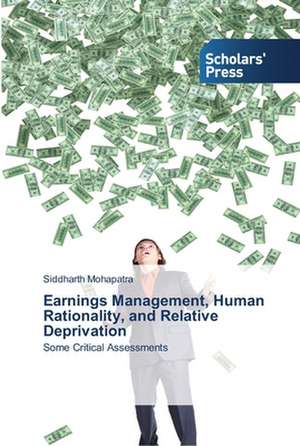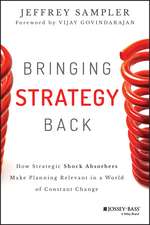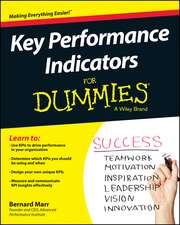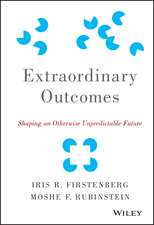Earnings Management, Human Rationality, and Relative Deprivation
Autor Siddharth Mohapatraen Limba Engleză Paperback – 27 mai 2015
Preț: 430.03 lei
Preț vechi: 467.42 lei
-8% Nou
Puncte Express: 645
Preț estimativ în valută:
82.28€ • 86.14$ • 68.09£
82.28€ • 86.14$ • 68.09£
Carte tipărită la comandă
Livrare economică 07-21 aprilie
Preluare comenzi: 021 569.72.76
Specificații
ISBN-13: 9783639764147
ISBN-10: 3639764145
Pagini: 368
Dimensiuni: 152 x 229 x 21 mm
Greutate: 0.54 kg
Editura: Scholars' Press
ISBN-10: 3639764145
Pagini: 368
Dimensiuni: 152 x 229 x 21 mm
Greutate: 0.54 kg
Editura: Scholars' Press
Notă biografică
Siddharth Mohapatra ist ein Lernender und Lehrender im Bereich der Sozialpsychologie des Managements. Er hat einen Master of Science in Bewusstseinsstudien und einen Doktortitel in Wirtschaft und Management von der Universität Ca'Foscari in Venedig, Italien. Er forscht in den Bereichen Berufsethik, Arbeitspsychologie, nachhaltiges Personalwesen und Verständnis der Millennials.














